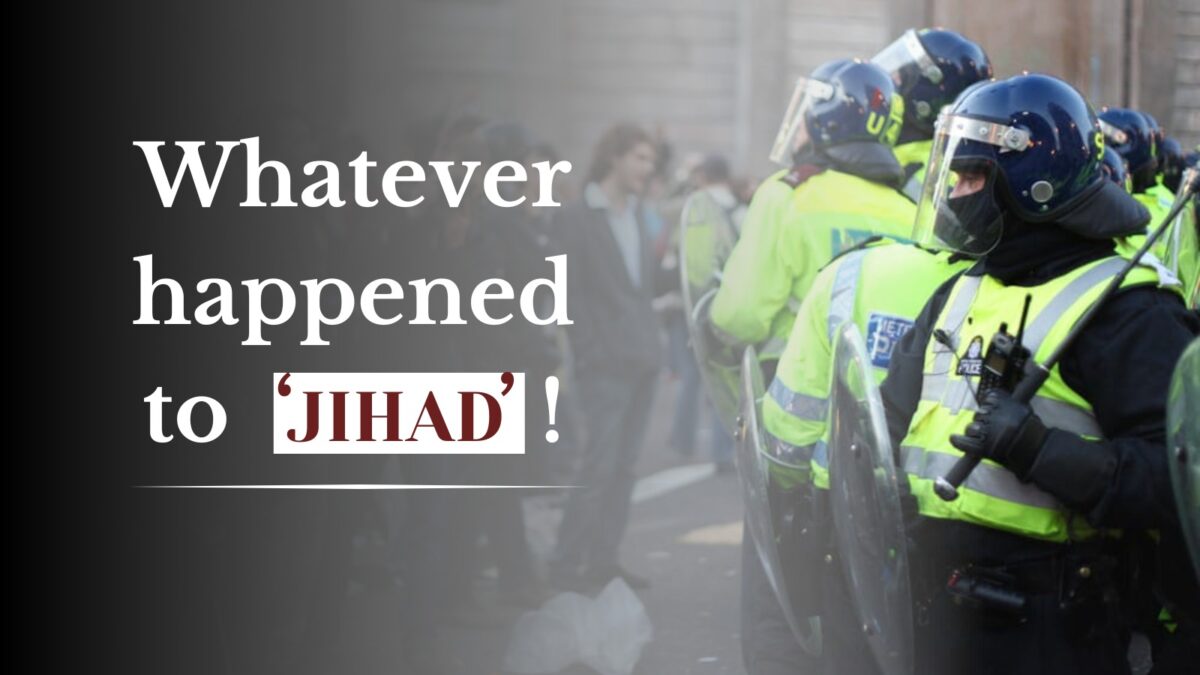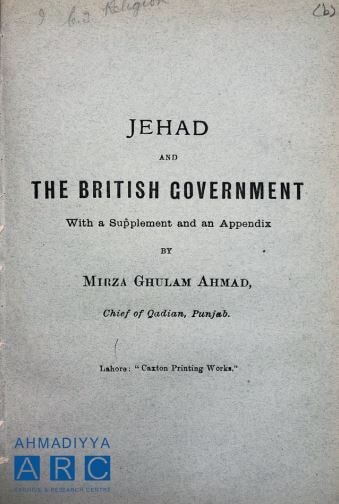Asif M Basit, London

“The extreme far right wants to provoke Muslims and reinforce divisions and see violent clashes on our streets. We must not hand over what the extremists desire.” (Qari Asim [Minab]: www.theguardian.com, Muslim leaders urge restraint in response to far-right attacks, Herriet Sherwood, 6 August 2024)
Contrary to what readers might assume, surprisingly, this statement was not made by an Ahmadi Muslim.
“When the Bradford riots happened, […] young Asian Pakistani lads rioted against the police and some of them were sentenced up to 25 years. Don’t make that mistake. “[…] Don’t allow the far-right to provoke you into violence, for which you will be sentenced to tens of years in jail; it’s not worth it.” (Asrar Rashid: www.thenewarab.com, British Muslim leaders urge restraint as far-right riots spread across UK, 6 August 2024)
Likewise, the above warning against repeating such mistakes was also not from an Ahmadi Muslim.
Interestingly, the first statement is attributed to Qari Asim, the chair of the Mosques and Imams National Advisory Board (MINAB), while the second comes from Asrar Rashid, a Muslim cleric based in the Midlands.
Not only that the above statements were not by Ahmadis, they were issued by Muslim clerics who criticised the Ahmadiyya belief of jihad all along – the belief that violence should not always beget violence.
Colonial India and Ahmadiyya stance on jihad

The Founder of the Ahmadiyya Muslim community, Hazrat Mirza Ghulam Ahmadas was born and lived all his life in the colonial days of British India. Not only were the British colonialists in full control of the geopolitical and economic affairs of the Indian subcontinent, their policy of religious freedom allowed, alongside other faiths, the Christian missionaries to roam freely across the length and breadth of the country. Mass conversions to Christianity were rife and the body of Muslim clergy was on its knees watching the “kafirs” prey innocent Muslims away.
Muslim clergy, aghast and perplexed, resorted to a variety of strategies to fight the overwhelming control of their foreign and non-Muslim ruler. While some sought to fight in the name of jihad, others, who happened to be in the vast majority, thought that a violent retaliation was a gross underestimation of the “enemy” they faced.
The India Office Records at the British Library in London have huge stacks of files where every file is full to the brim with letters of Muslim anjumans and organisations, from across India, pledging loyalty to the British government – Her Majesty’s Government, to remain precise, and historically and intellectually honest.
Reading through these pledges of Muslim loyalty to the British Crown, one is left dumfounded in astonishment to see how offspring mushrooms of the same organisations have, over the course of history, not only denied their love affairs with the British, but have concocted a narrative of having opposed them in the most rigorous manner.
While these Muslim organisations rarely ever unite, the one anthem they sing in unison is one against the Ahmadiyya, claiming that their founder was the only Muslim who remained loyal to the British while, as they claim, their elders fought tooth and nail against the “kafir” Raj. Also claimed is that the founder of the Ahmadiyya Jamaat alone condemned the idea of jihad against the British in India.
Putting aside the widespread support for the British by the Muslims of colonial India, it remains a truth – and truth be told – that Hazrat Mirza Ghulam Ahmadas was a staunch supporter of the British government, and opposed waging jihad against them.
Hazrat Ahmad’sas rationale for opposing jihadist tendencies were based on Islamic teachings and traditions. He maintained that if law of the land allowed religious freedom, jihad against the ruler was Islamically illegal. Under the British rule, India had seen freedom of religion after centuries of religious oppression and persecution at the hands of native rulers. Where Sikhs could be intolerant towards Hindus, or vice-versa, Muslim leaders were no better towards other faiths when the reins came to their hands.
Hazrat Ahmadas also held, again based on Islamic law, that jihad had a wider meaning where writing, debating and, self-reformation, all had to be put into action before taking up arms.
The greatest crime on the charge sheet against him is of supporting the British Raj and urging Muslims to peacefully retaliate against any provocative situation. While he was not alone in doing so then, he has been singled out by revisionist Muslim historians who are bent to distorting narratives – a worst case of damnatio memoriae.
In calling for support and loyalty to the ruler of the land, Hazrat Ahmadas found grounds in Islamic teachings. Islam makes it incumbent upon every citizen, Muslim or otherwise, to remain loyal to the ruler and the law, to maintain peace in the society – the integral meaning and objective of Islam. In finding a precedent, he saw the first migration of the nascent Muslim community of Mecca, at the behest of none else but Prophet Muhammadsa, to Abyssinia, to live under a Christian king, obey his law and even to fight for “king and country” against his enemies. All this was practised to the letter by the small group of Muslim refugees during their stay in their predominantly Christian homeland and their Christian king Negus.
Labelled a colonialist, an imperialist and sycophant of the Raj, Hazrat Ahmad’sas teachings stood the test of time and those who labelled him as such have had to follow his teachings in the wake of anti-Islam riots in the UK.
Muslim clergy echo Ahmadiyya’s peaceful teaching
In the wake of riots and protests by extreme right-wing Britons, all Muslim leaders have publicly asked their followers to not retaliate to rioters, not be violent, and to remain supportive to the law of the land in tackling the situation. “It’s the job of the police and other authorities to protect individuals and mosques, and we should support them rather than become a hindrance,” says Qari Asim, chairman of Mosques and Imams National Advisory Board.
Another Muslim leader, Anas Altikriti (CEO Cordoba Foundation) made a similar call to the Muslims of Britain: “Let’s not give them [the rioters] the pleasure. Let’s make absolutely sure that we act according to our religion”, because the anti-Islam rioters “would love nothing more than to see Muslims act violently and break the law.” (Anas Altikriti: www.azertag.az, UK braces for more far-right violence as riots planned in more than 30 locations, 7 August 2024)
The Abdullah Quilliam Foundation also echoed the Ahmadiyya teachings by reaching out to the rioters and talking to them in a friendly fashion. Chairman of the Abdullah Quilliam Mosque in Liverpool, Dr Abdul Hamid, saw the rioters acting under a “fear of the unknown”, and felt “if they don’t get answers, they will try to find any excuse to label you.” (Dr Abdul Hamid: www.bbc.co.uk, Mosque leaders find moments of hope after violent disorder, 5 August 2024)
Muslims from the Quilliam mosque later told the BBC they had had “beautiful interactions” with the rioters, where they were able to “break bread” and that “deep conversations” steered the situation towards peacebuilding. (Mr Adam Kelwick: www.bbc.co.uk, Mosque leaders find moments of hope after violent disorder, 5 August 2024)
This newfound approach of Muslim clerics must be applauded for it is the best and the most Islamic way forward. Muslims were too busy painting the Ahmadiyya and their founder as un-Islamic when the world was at work in equating Islam with violence and terror. A late awakening for anti-Ahmadiyya Muslims it may be, but then, as they say, it’s never too late.
Hazrat Ahmadas founded his mission with the aim of reforming Islam – enabling it to coexist in an extremely pluralist world. He saw reform as the only way for Islam to stand the tempest of modernity.
Now that mutual dialogue, discourse and peaceful interaction is finally seen by Muslims as the roadmap towards peaceful coexistence, they might want to reconsider other reforms suggested by the Ahmadiyya. The fifth successor of the founder, Hazrat Mirza Masroor Ahmadaa, continues to call towards the Islamic reform known as the Ahmadiyya Movement in Islam.
We now live in a completely changed world – the new world that Hazrat Ahmadas had envisaged over a century ago. Muslims are forced to leave their homelands to live peacefully in the West. The term “Islamic world” now seems only to be a romantic concept of nostalgic Muslim imagination. The West too has transformed. The Sun has set (and sets every evening) on the leftover crumbs of the once mighty empires – including Muslim ones.
It took all this for Muslims to realise that Hazrat Ahmadas was right in his understanding of Islam for modern man. What else must it take before mainstream Muslims reassess the Ahmadiyya reform in its totality?

